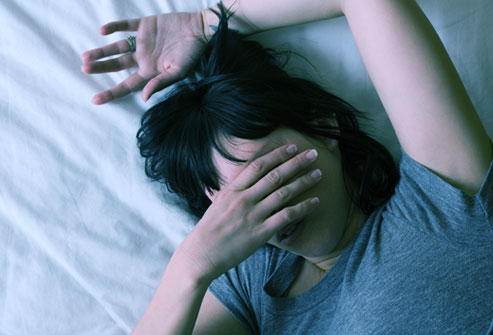If you’ve been battling with insomnia for years and popping sleeping pills and drinking warm tea has done little to help it, a new study published by the American medical journal, Annals of Internal Medicine, has led to a possible groundbreaking discovery for people with chronic insomnia.
The study has proved that the technique called cognitive behavioral therapy, which had until now found cures for mental illness, depression, mood alteration, substance abuse among other things, is effective in treatment of patients fighting insomnia.
So what is cognitive behavioral therapy?
A form of psychotherapy, it aims to solve mental health issues by changing the patterns of how we think and behave. So unhelpful and harmful thoughts are purposely pushed out of your mind and replaced with more productive attitudes and actions. It is a combination of cognitive technique (focusing on how we think) and behavioral technique (how we execute our thoughts). So instead of approaching the issue like a regular therapist, a cognitive behavioral therapist tries to access the causes and effects of internal and external situations like the environment and surrounding of the individual.
The recent study throws light on cognitive behavioral therapy for insomnia, or CBT-i, that tweaks the thinking pattern of an insomniac to tune him into a healthier sleeping routine. “While this therapy can’t “cure” insomnia, it does give you the tools to better manage it,” quotes the Harvard Medical journal.
The same story explains the trial for CBTi that was carried out in the United States recently. Researchers combined data from 20 different trials of CBT-i involving more than 1,100 people with chronic insomnia. People treated with CBT-i fell asleep almost 20 minutes faster and spent 30 fewer minutes awake during the night compared with people who didn’t undergo CBT-i.
Why would people opt for CBTi?

Though not many medical practitioners may not be fluent in the technique yet, the reasons to check out CBTi are many. The first of which being the existing available option to battle insomnia may not be enough or might prove unhealthy. We all know that sleeping pills have side-effects and people are often forced to push the limits of their prescription because it is three am, and they are still wide awake staring at their ceiling fans. Moreover, if pills may make you feel sluggish and tired, you’ll be left with much lesser energy the next day. CBTi has been recommended for such patients precisely, and has worked successfully.
What does the treatment entail?
The CBTi treatment may be undertaken through a practiced behavioral therapist only. In some cases, hypnotic therapy also has found to be helpful along with CBTi. But since not everyone may be comfortable with the idea of medical hypnosis, a regular CBTi course comes recommended. Some of the methods that are adopted during the technique are as follows:
-
Maintaining a sleep diary:
Though a common remedy for sleeplessness, this is one of the first things that are recommended for CBTi as well. A journal of the hours you spent awake, and the time you caught those precious winks must be entered faithfully into your diary. This will help you map the sleeping pattern.
-
Therapy sessions:
Regular sessions with your therapist will help you realise the possible reasons for sleep deprivation. If any underlying traces of mental uneasiness are detected, then they are worked on in these sessions.
-
The bed is for sleeping:
Therapists suggest that any time you’re not asleep in bed, instead of tossing and turning and waiting to fall asleep, you should promptly get out of bed. One must condition the mind to think that the bed is the space where you can go for a deep sleep.
-
Change your daily routine:
If you take naps during the day, insist on an extra shot of coffee in your daily cappuccino or wake up late and party hard at night, while you battle with insomnia, these activities need to take a back seat. As you work through your day, look forward to a good night’s sleep, and let it be on your mind.

Change your daily habits such as staying up watching television While the study applies more recently America, the practice of CBTi may not be far from India either. Though few medical practitioners may be aware of this technique, it is perhaps a good idea to ask your doctor about it in the next visit. If you wish you give it a shot by yourself, websites and apps such as SHUTi (Sleep Healthy Using The Internet) is a good option. Once you sign up online, you try their web course for sleep therapy, and if it works for you, head to the behavioral therapists office for the real thing.

